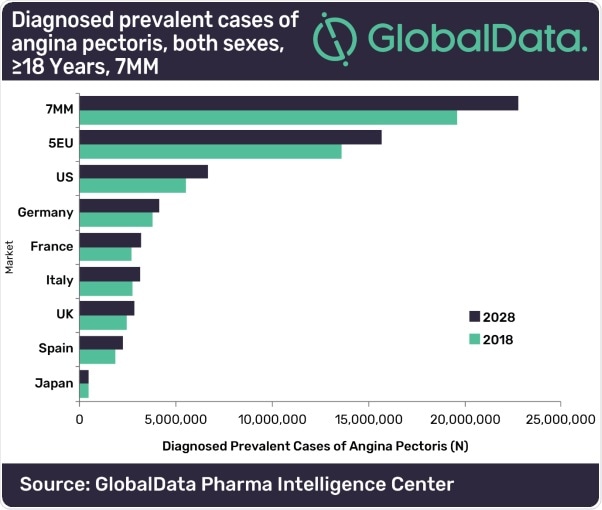The diagnosed prevalent cases of angina pectoris is expected to increase from 19.58 million cases in 2018 to 22.79 million cases in 2028, at an annual growth rate (AGR) of 1.64% across the seven major markets 7MM, according to GlobalData, a leading data and analytics company.

Of the 7MM, the US is expected to have the highest number of diagnosed prevalent cases in 2018 and increasing at an AGR of 2.04% (2018–2028), followed by Germany (1.01%) and France (1.80%).
The company’s latest report, ‘GlobalData (2020). Angina Pectoris - Epidemiology Forecast Report to 2028,’ notes that the major drivers for the upward trend in the diagnosed prevalent cases of angina pectoris in both sexes in the 7MM over the next decade may be attributable to advancing age, family history of premature coronary artery diseases, cigarette smoking, diabetes mellitus, hypercholesterolemia, or systemic hypertension, and changing population demographics in the respective markets.
The aetiology of angina pectoris is not fully understood and it is a largely untreatable condition. There is also an urgent need for further research to gather country-specific epidemiological data to better understand the etiology and underlying risk factors of angina pectoris; such knowledge could help tackle the burden of angina pectoris.”
Suneedh Manthri, Associate Project Manager of Epidemiology at GlobalData